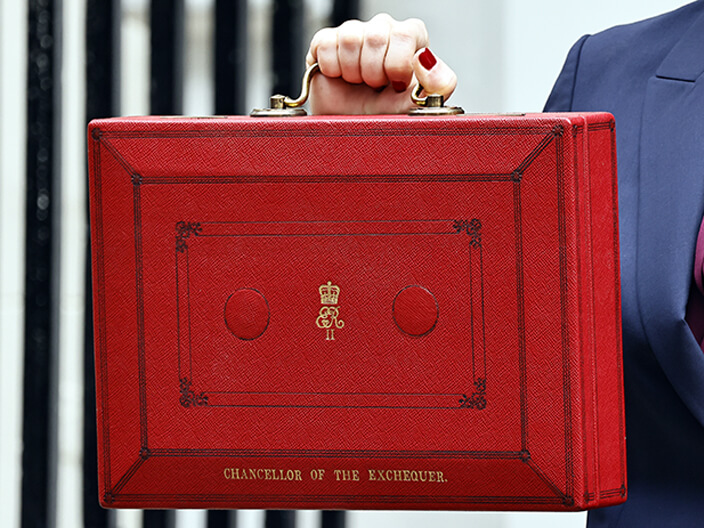The number of electric vehicles continues to grow, and the UK is leading the charge. In 2024, the UK represented the largest EV market in Europe and by the end of June 2025 there were 1.55 million EVs on our roads, according to charge point data provider Zapmap. On the 15th July the UK government launched The ElectricCar Grant (ECG) to further boost that number by making it cheaper and easier to access an electric vehicle.
So, just how will the ECG work in practice? We take a look at the information available so far and what the grant means for SME fleets.
How much funding is available through the ECG?
A total of £650million.
How long will the grant run for?
The funding is openuntil the 2028 / 2029 financial year - or until the grant runs out if sooner.
How will the ECG work?
From the 16th July, manufacturers could apply to be part of the grant scheme via the government’s online portal. If the application is successful, drivers can then start to benefit from discounts on approved manufacturer vehicles.
From the 11th August, manufacturers can place orders for eligible vehicles via the portal - funding is on a first come, first served basis. Legitimate orders agreed with customers for vehicles that are confirmed eligible for the ECG between 16th July 2025 and 11th August 2025 will also be honoured.
‘This EV grant will not only allow people to keep more of their hard-earned money –it’ll help our automotive sector seize one of the biggest opportunities of the 21st century. And with over 82,000 public chargepoints now available across the UK, we’ve built the infrastructure families need to make the switch with confidence. This is our Plan for Change in action. We’re backing British drivers, British jobs and British growth.’
Heidi Alexander, Transport Secretary
What vehicles are eligible?
Vehicles with a list price up to the value of £37,000 are included. These must be zero emission vehicles made by manufacturers with a verified Science Based Target (SBT) who have carbon scores below a specified threshold, to encourage only the least carbon intensive manufacturing.
How do the ECG bandings work?
There are two grant bands, based on how sustainable the manufacturing of the vehicles and battery are:
- Band 1 vehicles - £3,750 per unit
- Band two vehicles - £1,500 per unit
Bands are based on thresholds for carbon emissions from energy generation for the country in which the vehicles and batteries are manufactured.
How are manufacturers approaching the new grant?
Some manufacturers are already offering discounts ahead of grant approval according to This Is Money - including MG, Leapmotor, GWM, Hyundai, Volvo, Fiat and Kia.
‘I’m delighted to see the introduction of the Electric Car Grant - anything that helps drive fleet electrification has to be positive. What remains to be seen is exactly which manufacturers will be successful in securing the grant and how much benefit we will see passed on to support rental reductions for our customers.
What we need now is clarity on the process to ensure confusion doesn’t delay or impact EV take up. Clearly it’s early days but we’re hoping this will be really good news for fleets, drivers and our salary sacrifice customers.’
Graham Lesslie, CEO, Gofor
Potential benefits for fleets and Salary Sacrifice customers
Until the first manufacturers are accepted into the grant scheme, it is difficult to predict the impact of the grant for lease customers but it is anticipated that, assuming the manufacturers pass on the grant savings, fleets and salary sacrifice customers should benefit from reduced monthly rentals making EVs even more affordable.
What is the additional EV charging funding announced by the government?
On July 13th the government announced a £63 million charging package in addition to existing charging grants. The new funding is broken down as follows:
Cross pavement home charging, £25 million - to support at-home charging for households without driveways - saving drivers up to a quoted £1,500 a year
Depot & fleet charging grants, £30 million - for businesses including HGV, van, and coach operators to install chargers at depots and accelerate electric adoption in commercial fleets
NHS fleet electrification, £8 million - funding for chargepoints at NHS sites to support ambulances and medical vehicles
What existing grants are available to support businesseswith the transition to electric vehicles?
There are already a range of grants in place to aid businesses with the transition to an electric fleet, these include:
- EV infrastructure grant for staff and fleets, aimed at small to medium enterprises (SMEs)
- Workplace Charging Scheme (WCS) – open to registered businesses, charities, public sector organisations and small accommodation businesses
- Plug-in Van & Truck Grant - helps bridge the price gap between the cost of ultra-low emission vans and diesel vans, and also extended to cover HGVs
FAQs
Can the grant be backdated?
No. The grant is only for purchases of new eligible vehicles made on or after 16 July 2025. It cannot be backdated for orders placed before this date.
Are salary sacrifice schemes eligible for the grant?
Yes, private and business customers are eligible for the grant and this includes salary sacrifice schemes.
Will the existing grants remain in place?
Yes. There are currently no changes planned for existing grants.
For more information:
Gov.uk £63 million charging investment
BVRLA Electric Car Grant FAQs




